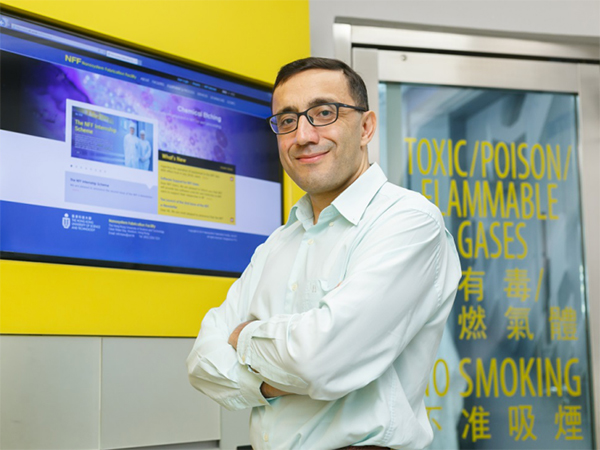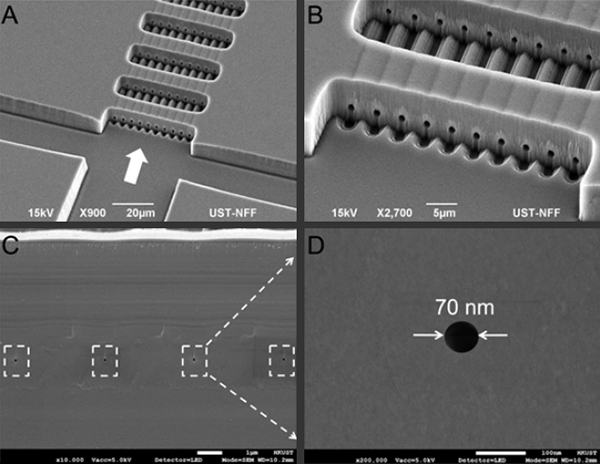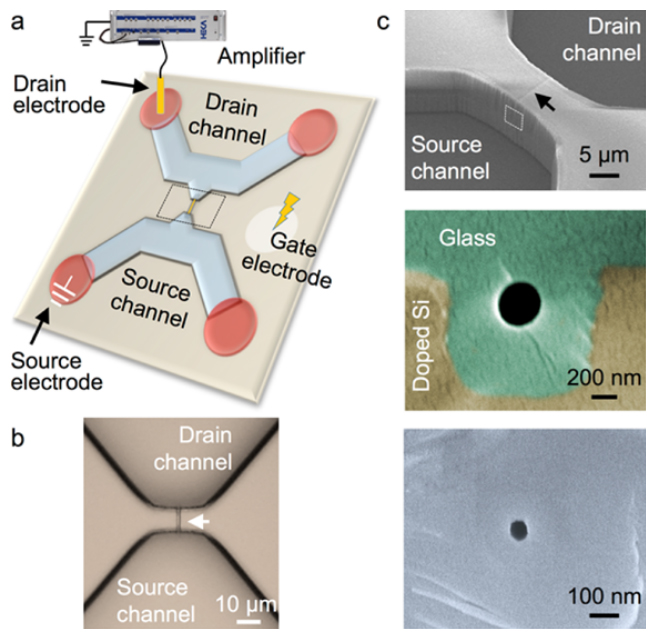Featuring Microfluidics and Nanofluidics Research
Microfluidics and nanofluidics research for bio/life-science applications now constitutes a substantial portion of the research activities conducted at the NFF and represents the largest group of NFF users.
Prof. Levent YOBAS of the Department of Electronic and Computer Engineering (ECE) of the HKUST has demonstrated various microfluidic and nanofluidic platforms for biomedical applications using the NFF labs over the past decade. A common feature of all these devices is that they involve silicon-based microscopic structures realized through strategies offered by semiconductor process technology.

A sieving structure features highly ordered tubular nanochannels with a diameter down to 70 nm. It has been shown to effectively sort DNAs and proteins based on their molecular sizes in a gel-free buffer.

A single nanochannel has also been furnished as a nanofluidic field-effect transistor and subsequently demonstrated for slowing the translocation of a single DNA chain. An externally applied gate bias modulates the channel surface charge and enhances the electrostatic interactions between the DNA chain and the channel wall, thereby retarding the DNA translocation.
